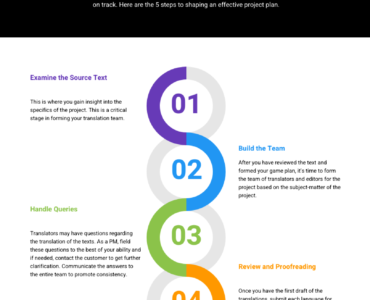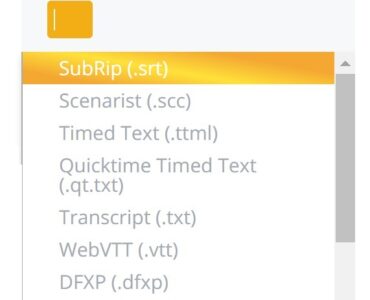by Luke Smith
The relatively swift rise of the internet over the last couple of decades has provided easy access to global cultures, connections, and marketplaces. One of the industries that has benefitted is the car import sector. Dealers can provide consumers with a more nuanced choice of vehicles because they have access to international suppliers.
That’s not to say the process is necessarily easy. Dealers have to interact with suppliers, consumers, and regulators that communicate in different languages. As a result, there are fantastic opportunities available if you’re pursuing a translation career.
Let’s look at how translators can support car importers in navigating foreign markets.
Addressing Global Industrial Challenges
The increasing globalization of many industries presents challenges as well as opportunities. The automotive sector, like many others, can take advantage of more diverse and cost-effective supply chains. However, different countries have varying regulatory standards. When dealers seek to purchase from abroad, they need export licenses, additional safety checks, and tariffs. This can be quite overwhelming when vehicle importers are trying to operate in a language that is not native to them.
This is where you can be particularly valuable as a translator. Your knowledge of other languages can:
Streamline communications with supply chains
Among the key challenges of importing vehicles from foreign markets is navigating the supply chain. Avoiding hurdles requires consistent and clear communication with chain partners. Depending on where a dealer is importing a vehicle from, there may be several different partners involved, from manufacturers, to export logistics coordinators, to shipping companies. There’s never any guarantee that any or all of these suppliers will have staff that are fluent in English. Therefore, as a translator, you can be key to ensuring the accuracy of continued communications and a smoother import process.
Interpret complex regulatory documentation
Regulatory legalese can be confusing enough in one’s own language. When dealers have to manage export regulations for cars in a language they’re not familiar with, this holds the potential for a range of problems. A simple linguistic error when interpreting paperwork could see dealers facing fines, tax issues, and potentially not receiving the vehicle at all. By offering your translation skills from the outset of the import process, you can provide accurate insights into legal contracts, regulatory import compliance documents, and export applications.
Handling Nuanced Language and Culture
It’s important to understand that the language challenges car importers may have to navigate might not simply be restricted to legalese and technical vocabulary. When people talk or write in their native language, they tend to utilize more nuanced forms of communication. They may use slang. There may be cultural nuances, such as subtle language choices that communicate respect rather than overfamiliarity. Your skills as a translator can be invaluable to dealers in this regard.
Assisting expat customers
The nuanced language customers use when purchasing a car can impact the purchasing experience. They may wish to take control of the structure of negotiations by saying they want to pay a fair price for a car rather than outright stating their budget. There can also be nuanced language surrounding whether the customer is financing the vehicle and if they’re considering a trade-in.
When dealing with expat customers for importing vehicles, they may be more comfortable expressing themselves in their native language as they can utilize the nuances they’re familiar with. As a translator, you can be a go-between that empowers consumers to negotiate effectively while making certain dealers give their customers a positive experience. You may also be essential in translating foreign car user manuals to ensure English-speaking consumers have a full understanding of how to safely operate an imported vehicle.
Navigating cross-border negotiations
Import dealers’ negotiations with suppliers can be very delicate. When undertaking discussions with suppliers, having a certain amount of cultural and linguistic confidence can be helpful. Not to mention that local language skills minimize the potential for confusion surrounding pricing or delivery expectations. As a translator, you can support dealers in their cross-border negotiation processes — whether these are over video conferencing, telephone, or in writing. You can translate what dealers are saying to suppliers in ways that use levels of politeness, respect, and even forthrightness that are culturally appropriate.
Marketing Your Services to the Industry
Import car dealing may not be the most traditional use of translation services. While there’s a growing need for these skills, dealers in this sector may not yet be fully aware of how professionals such as yourself can provide practical value to them. Therefore, it’s in your best interests to start marketing yourself in ways that help highlight your potential in their business model.
You can start by:
Talking directly to import dealers
Reach out to importers that are sourcing vehicles from countries that use languages you specialize in. Talk to them about the specific linguistic and communicative challenges they’re facing and perhaps suggest some they may not yet be aware of. If they’re currently relying on machine translation, discuss what cultural and linguistic nuances software tends to miss. You can do this by directly contacting individual dealers or joining online networking groups for the sector.
Producing content
Marketing content can help dealers to understand your place and value. This could include videos demonstrating how your translation services could fit into the negotiation and supply chain processes. You could create blog posts or podcasts that explore how translators are an accessible resource to entrepreneurs. These materials are not only good for communicating the value of your services but also reinforce your expertise in the field.
Conclusion
As a translator, there are opportunities for you to support car importers as the industry becomes increasingly globalized. You can help to interpret regulatory documentation and assist dealers in navigating supply chain issues. Importantly, you can act as a vital linguistic and cultural go-between during consumer and supplier interactions. While breaking into this sector will require some research and good marketing, you may find it’s a great source of income and interesting experiences. As the digital landscape continues to give entrepreneurs access to markets across the globe, be open to finding these types of underexplored spaces to flex your professional skills.
About the Author
Luke Smith is a writer and researcher turned blogger. Since finishing college, he is trying his hand at being a freelance writer. When he isn’t writing you can find him travelling, hiking, or gaming. You can keep up with his writing on his Twitter.






